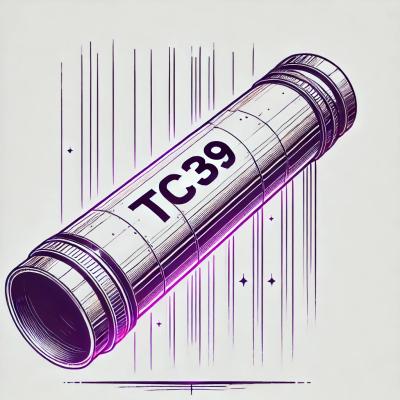
Security News
NVD Quietly Sweeps 100K+ CVEs Into a “Deferred” Black Hole
NVD now marks all pre-2018 CVEs as "Deferred," signaling it will no longer enrich older vulnerabilities, further eroding trust in its data.
The Ollama Python library provides the easiest way to integrate Python 3.8+ projects with Ollama.
ollama pull <model> e.g. ollama pull llama3.2
pip install ollama
from ollama import chat
from ollama import ChatResponse
response: ChatResponse = chat(model='llama3.2', messages=[
{
'role': 'user',
'content': 'Why is the sky blue?',
},
])
print(response['message']['content'])
# or access fields directly from the response object
print(response.message.content)
See _types.py for more information on the response types.
Response streaming can be enabled by setting stream=True.
from ollama import chat
stream = chat(
model='llama3.2',
messages=[{'role': 'user', 'content': 'Why is the sky blue?'}],
stream=True,
)
for chunk in stream:
print(chunk['message']['content'], end='', flush=True)
A custom client can be created by instantiating Client or AsyncClient from ollama.
All extra keyword arguments are passed into the httpx.Client.
from ollama import Client
client = Client(
host='http://localhost:11434',
headers={'x-some-header': 'some-value'}
)
response = client.chat(model='llama3.2', messages=[
{
'role': 'user',
'content': 'Why is the sky blue?',
},
])
The AsyncClient class is used to make asynchronous requests. It can be configured with the same fields as the Client class.
import asyncio
from ollama import AsyncClient
async def chat():
message = {'role': 'user', 'content': 'Why is the sky blue?'}
response = await AsyncClient().chat(model='llama3.2', messages=[message])
asyncio.run(chat())
Setting stream=True modifies functions to return a Python asynchronous generator:
import asyncio
from ollama import AsyncClient
async def chat():
message = {'role': 'user', 'content': 'Why is the sky blue?'}
async for part in await AsyncClient().chat(model='llama3.2', messages=[message], stream=True):
print(part['message']['content'], end='', flush=True)
asyncio.run(chat())
The Ollama Python library's API is designed around the Ollama REST API
ollama.chat(model='llama3.2', messages=[{'role': 'user', 'content': 'Why is the sky blue?'}])
ollama.generate(model='llama3.2', prompt='Why is the sky blue?')
ollama.list()
ollama.show('llama3.2')
ollama.create(model='example', from_='llama3.2', system="You are Mario from Super Mario Bros.")
ollama.copy('llama3.2', 'user/llama3.2')
ollama.delete('llama3.2')
ollama.pull('llama3.2')
ollama.push('user/llama3.2')
ollama.embed(model='llama3.2', input='The sky is blue because of rayleigh scattering')
ollama.embed(model='llama3.2', input=['The sky is blue because of rayleigh scattering', 'Grass is green because of chlorophyll'])
ollama.ps()
Errors are raised if requests return an error status or if an error is detected while streaming.
model = 'does-not-yet-exist'
try:
ollama.chat(model)
except ollama.ResponseError as e:
print('Error:', e.error)
if e.status_code == 404:
ollama.pull(model)
FAQs
The official Python client for Ollama.
We found that ollama demonstrated a healthy version release cadence and project activity because the last version was released less than a year ago. It has 1 open source maintainer collaborating on the project.
Did you know?

Socket for GitHub automatically highlights issues in each pull request and monitors the health of all your open source dependencies. Discover the contents of your packages and block harmful activity before you install or update your dependencies.

Security News
NVD now marks all pre-2018 CVEs as "Deferred," signaling it will no longer enrich older vulnerabilities, further eroding trust in its data.

Research
Security News
Lazarus-linked threat actors expand their npm malware campaign with new RAT loaders, hex obfuscation, and over 5,600 downloads across 11 packages.

Security News
Safari 18.4 adds support for Iterator Helpers and two other TC39 JavaScript features, bringing full cross-browser coverage to key parts of the ECMAScript spec.